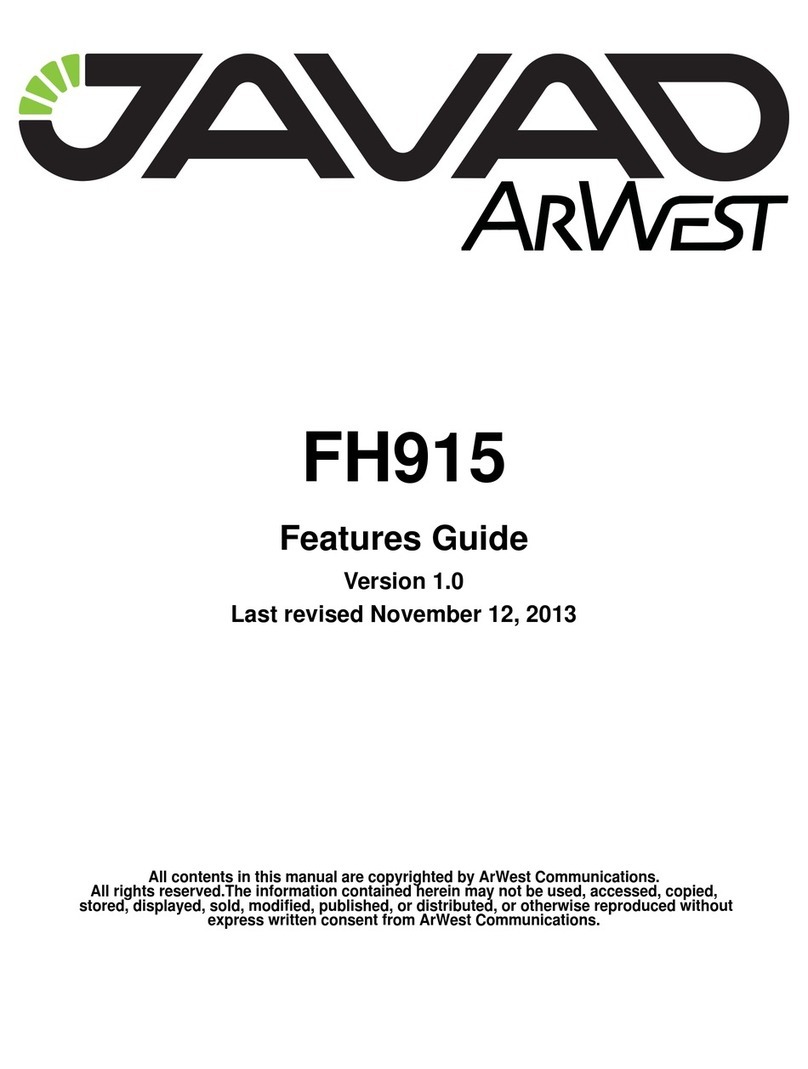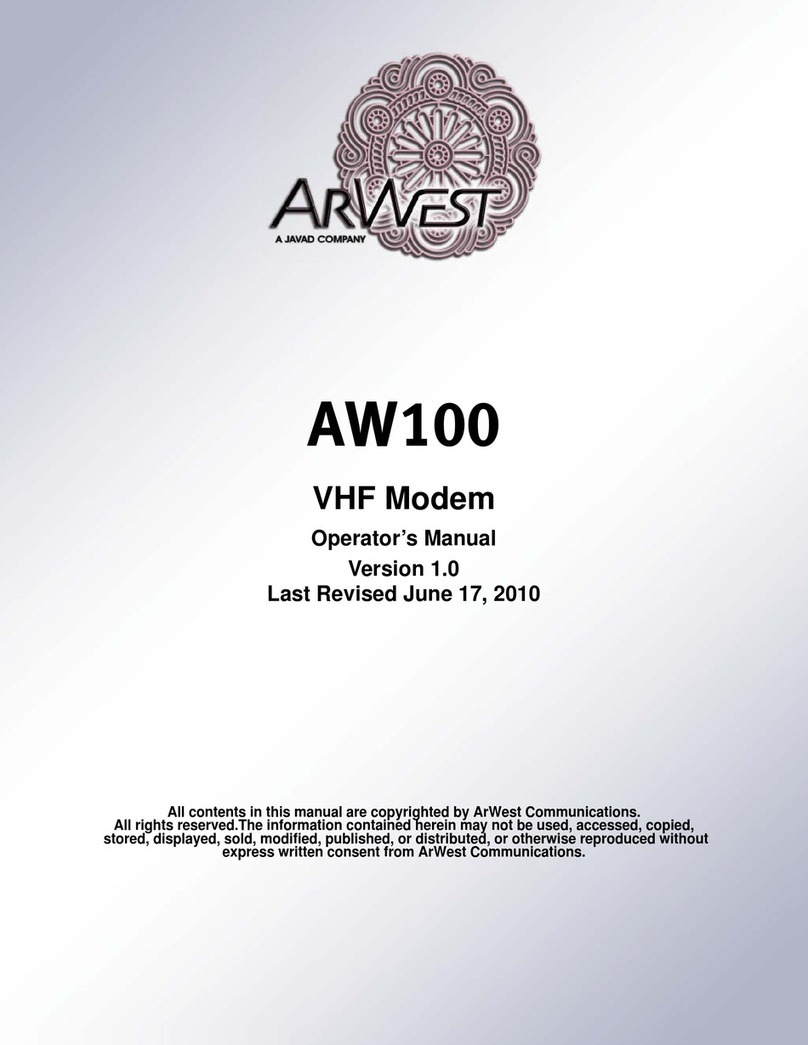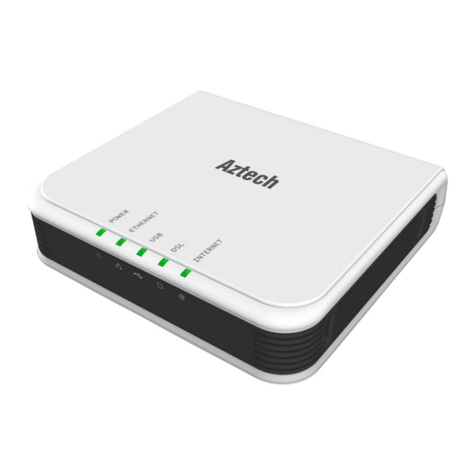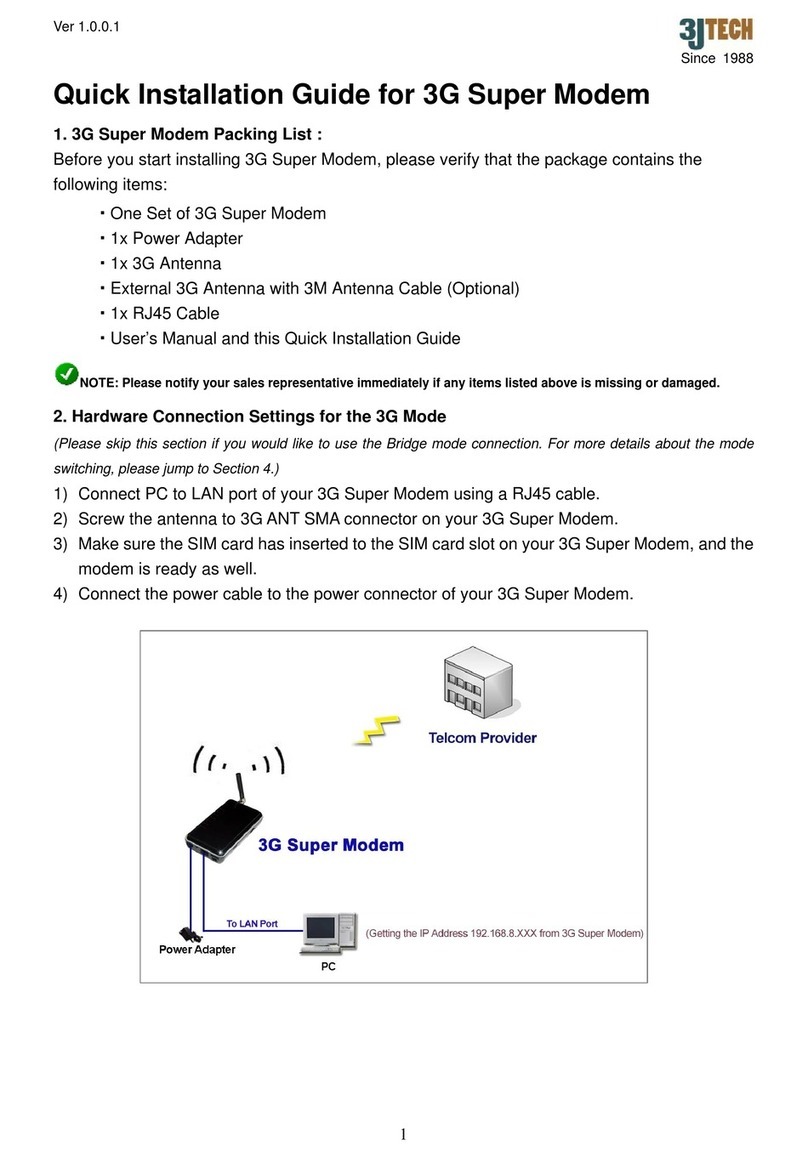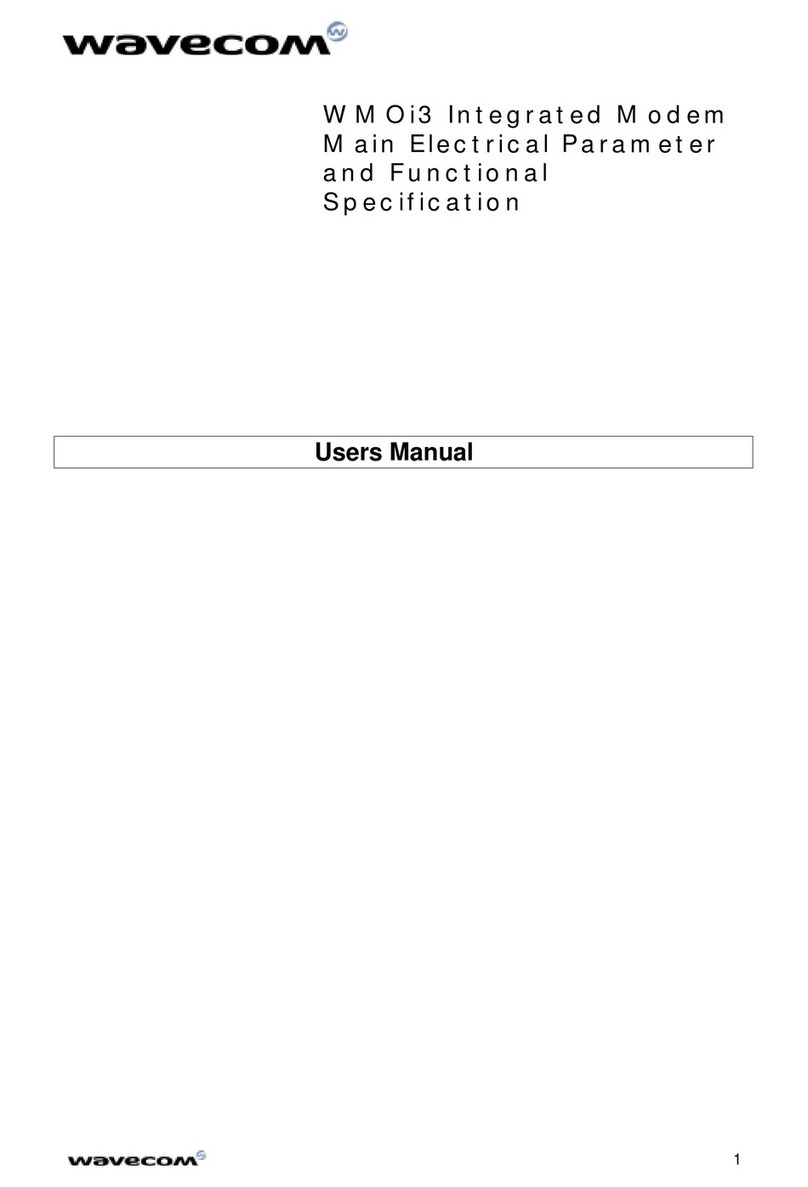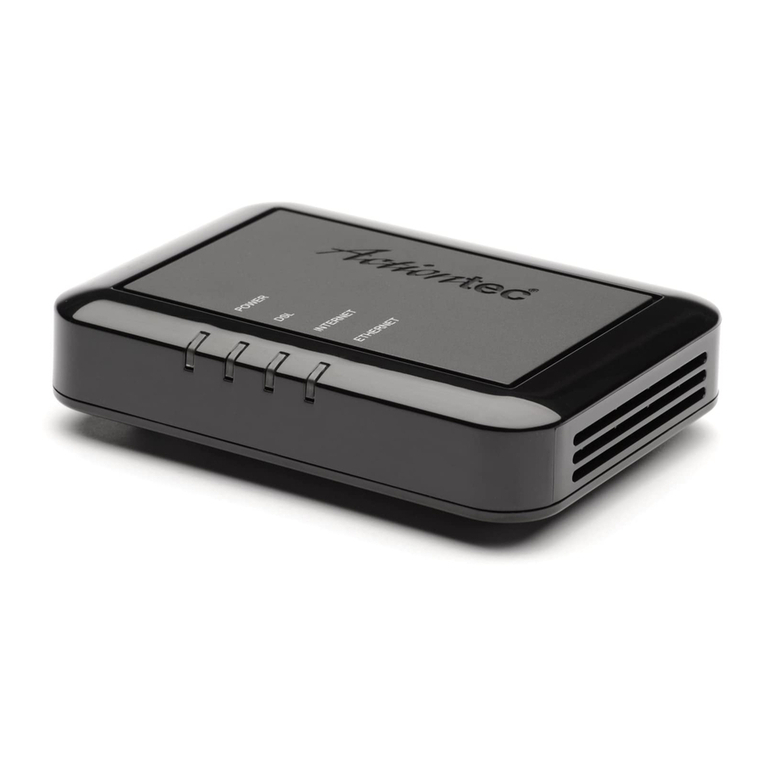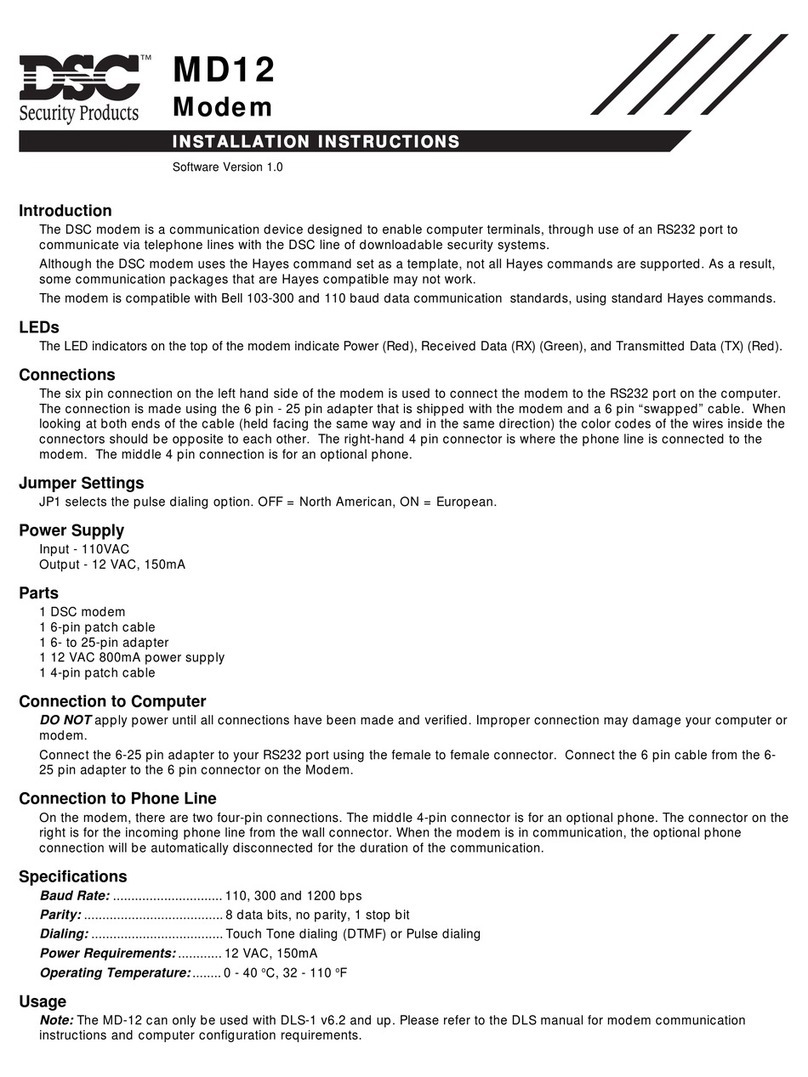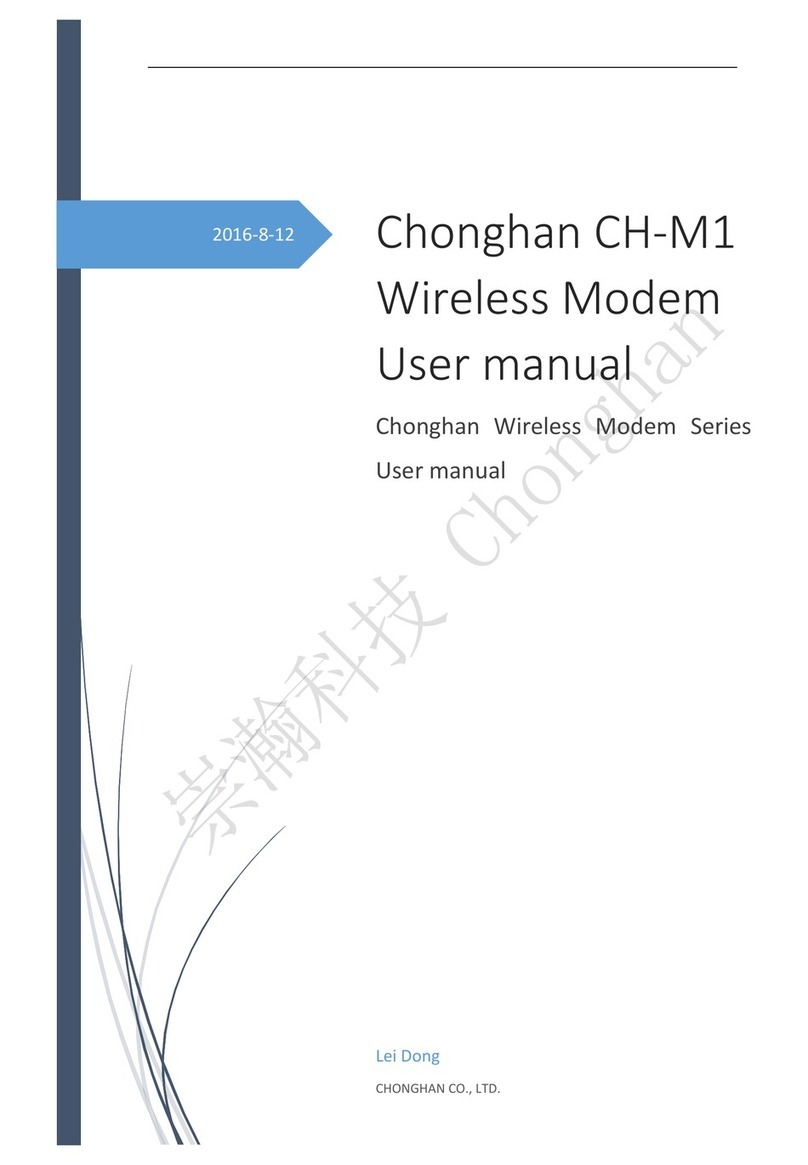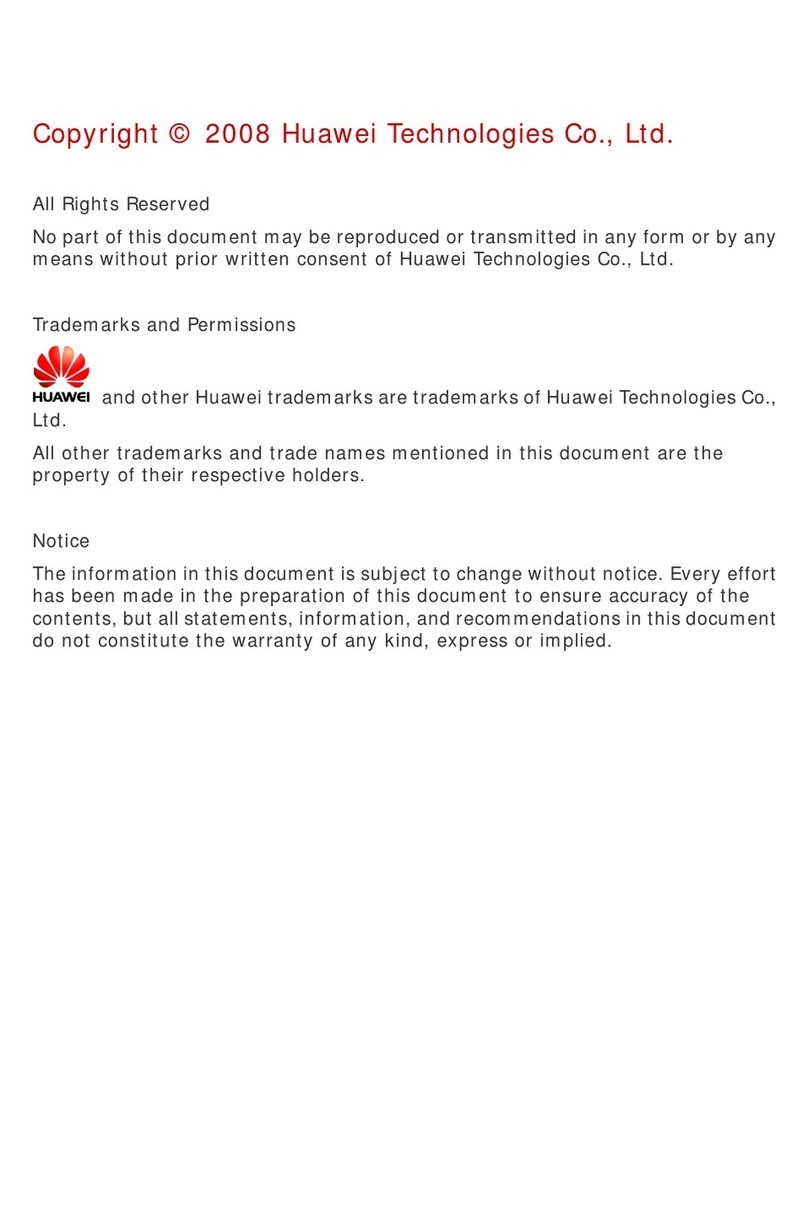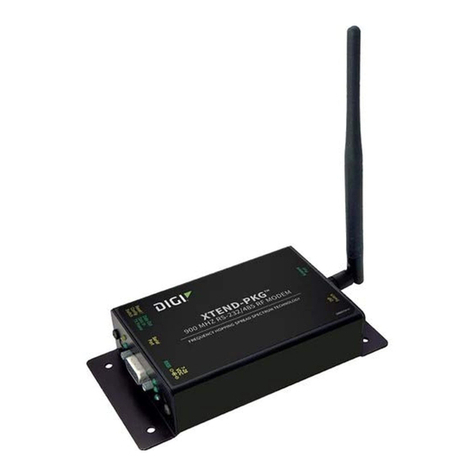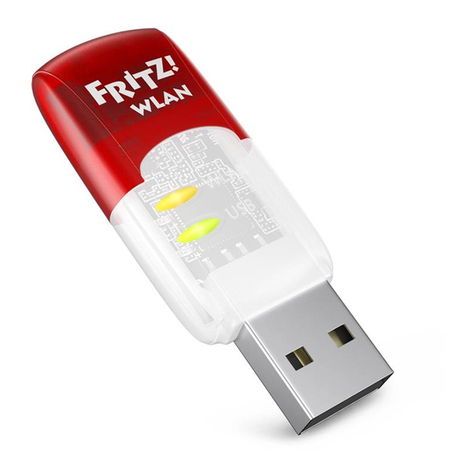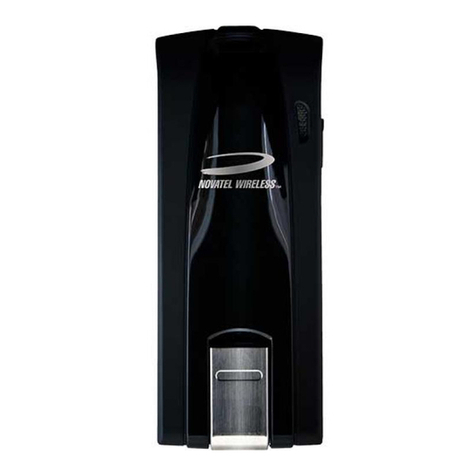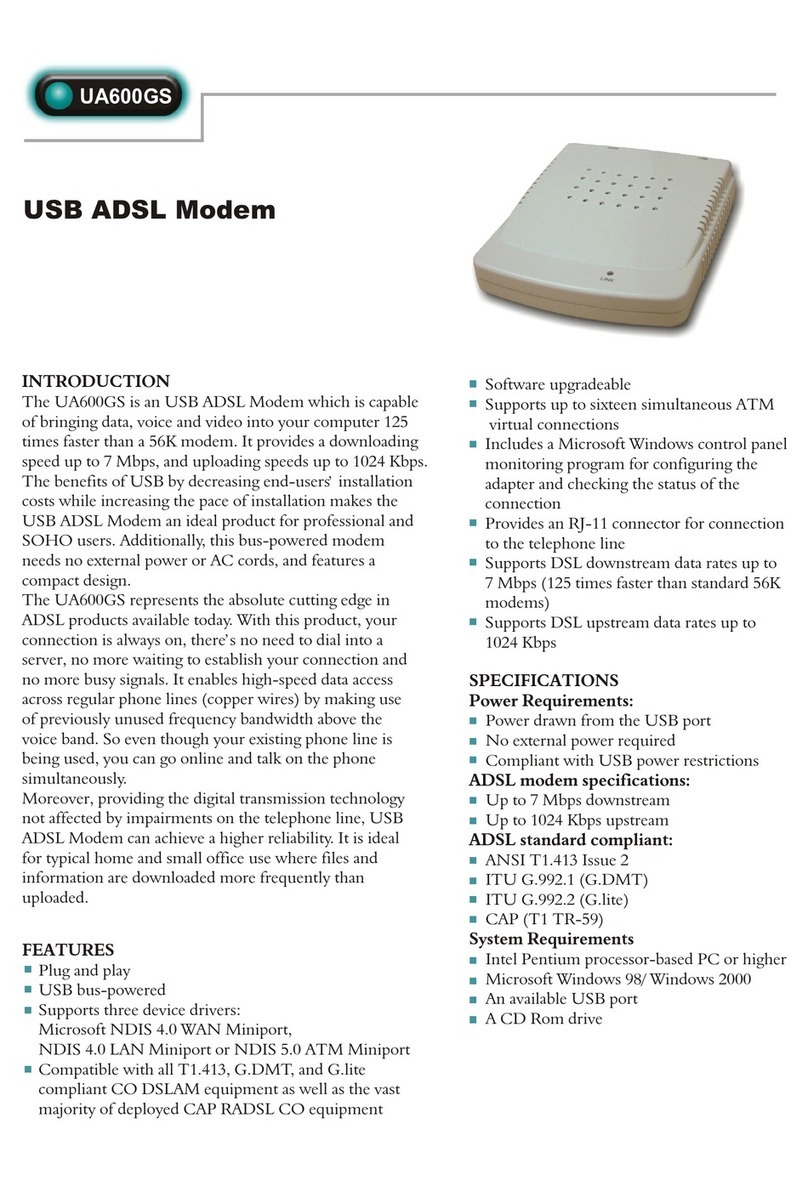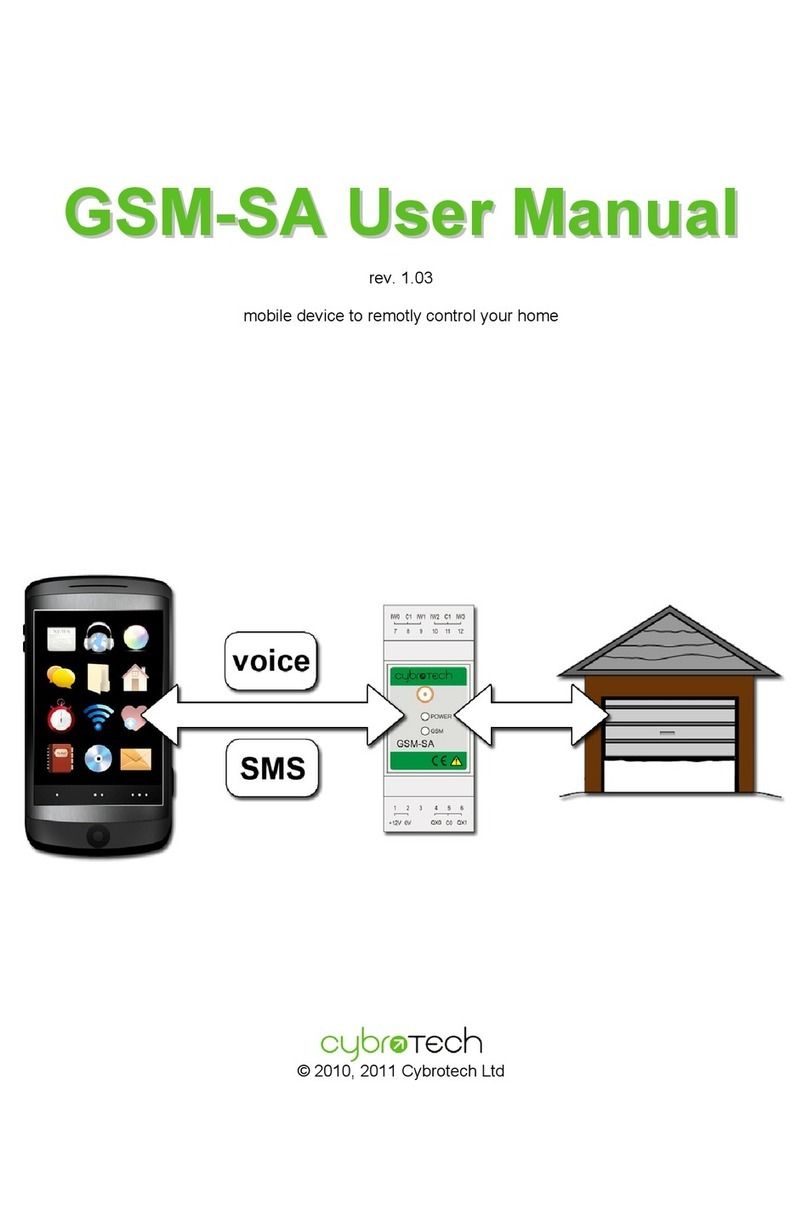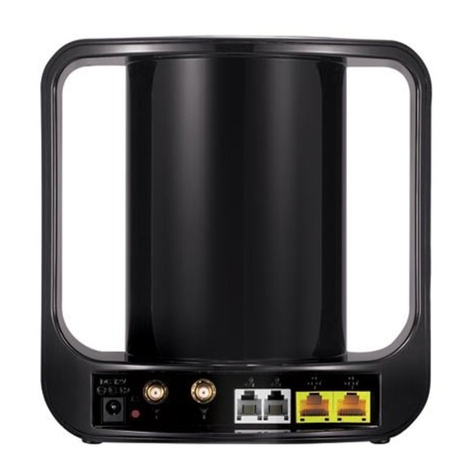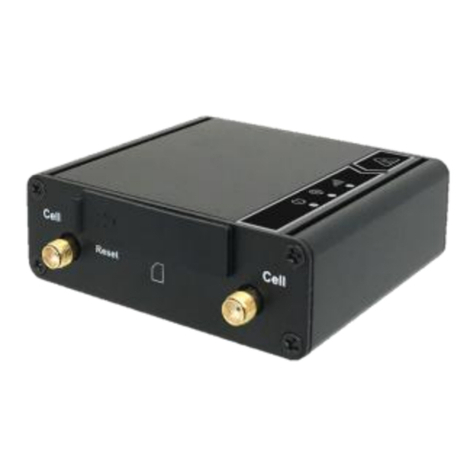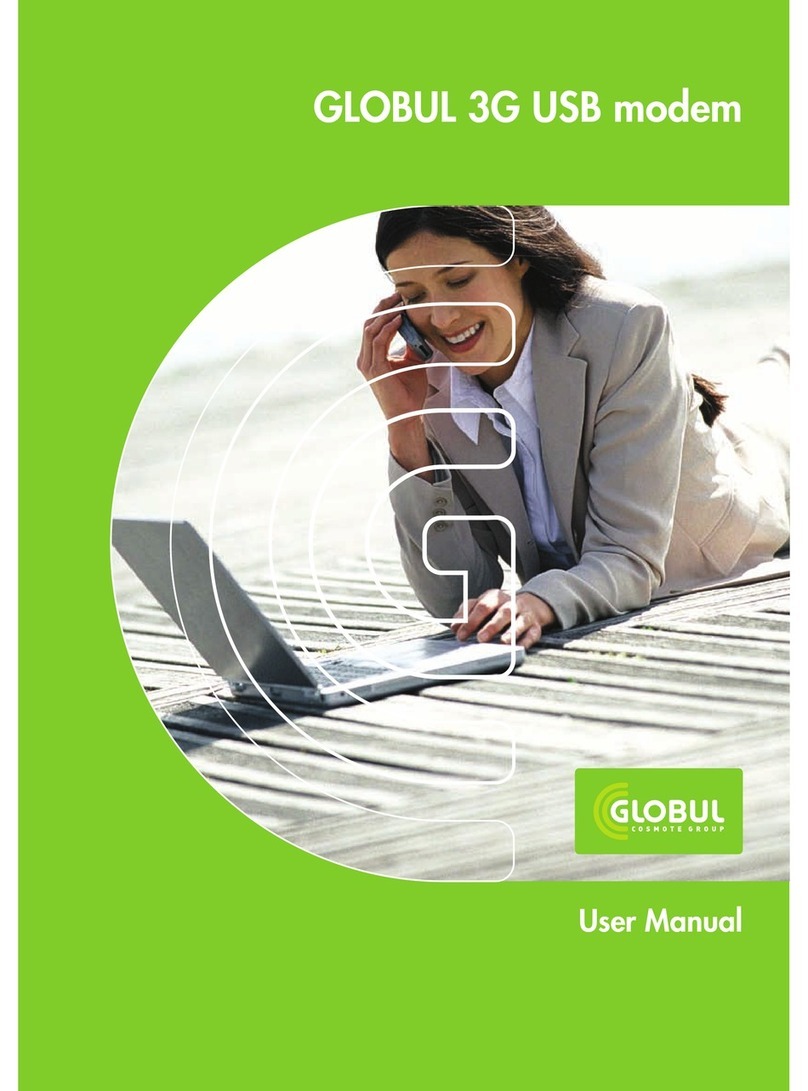ArWest alphawave AW100 User manual

AlphaWave Users Manual
AlphaWave Users Manual 3/21/2005


COPYRIGHT NOTICE
Copyright 2004 ArWest Communications Corp. All rights reserved.
No part of this publication or the computer programs described
herein may be reproduced, translated, stored in a retrieval system,
or transmitted in any form or by any means, electronic, mechanical
photocopying, recording or otherwise, without prior written permis-
sion of ArWest Communications Corp. Your rights with regard to this
publication and the computer programs are subject to the restric-
tions and limitations imposed by the copyright laws of the United
States of America (“U.S.A.”) and/or the jurisdiction in which you are
located. For information on translations and distribution outside the
U.S.A., please contact ArWest Communications.
Printed in the United States of America
Part Number: UF-00001-100
March 05
TRADEMARK NOTICE
ArWest is the registered trademark of ArWest Communications Corp.
AlphaWave, AW and AWare are trademarks of ArWest Communica-
tions Corp. All other product and brand names are trademarks or
registered trademarks of their respective holders.
SOFTWARE LICENSING AGREEMENT
IMPORTANT: BY OPENING THE SEALED DISK PACKAGE CONTAINING THE SOFT-
WARE MEDIA OR INSTALLING THE SOFTWARE YOU ARE AGREEING TO BE BOUND
BY THE TERMS AND CONDITIONS OF THE LICENSE AGREEMENT (‘AGREEMENT’).
THIS AGREEMENT CONSTITUTES THE COMPLETE AGREEMENT BETWEEN YOU
(‘LICENSEE’) AND ARWEST (‘LICENSOR’). CAREFULLY READ THE AGREEMENT
AND IF YOU DO NOT AGREE WITH THE TERMS RETURN THIS UBPOPENED DISK
PACKAGE AND THE ACCOMPANYING ITEMS TO THE PLACE WHERE YOU OBTAINED
THEM.
LICENSE: LICENSOR grants you a limited, non-exclusive, non-
transferable, personal license (‘License’) to (i) install and operate the
copy of the computer program contained in this package (‘Program’)
in machine acceptable form only on a single computer (one central
processing unit and associated monitor and keyboard) and (ii) make
Page—iii

one archival copy of the Program for use with the same computer.
LICENSOR and its third-party suppliers retain all rights to Program
not expressly granted in this Agreement.
OWNERSHIP OF PROGRAMS AND COPIES. This License is not a sale
of the original Program or any copies. LICENSOR and its third-party
suppliers retain the ownership of the Program and all copyrights and
other propriety rights therein, and all subsequent copies of the Pro-
gram made by you, regardless of the form in which the copies may
exist... The Program and the accompanying manuals
(‘Documentation’) are copyrighted works of authorship and contain
valuable trade secret and confidential information propriety to LI-
CENSOR and its third-party suppliers. You agree to exercise reason-
able efforts to protect the proprietary interests of the LICENSOR and
its third-party suppliers in the Program and Documentation and
maintain them in strict confidence.
USER-RESTRICTIONS. The Program is provided for use in your in-
ternal commercial business operations and must remain at all times
upon a single computer owned or leased by you. You may physically
transfer the program from one computer to another provided that
the Program is operated only on one computer at a time. You may
not operate the Program in a time-sharing or service bureau opera-
tion or rent, lease, sublease, sell, assign, pledge, transfer, transmit
electronically or otherwise dispose of the Program or Documentation,
on a temporary or permanent basis, without prior written consent of
LICENSOR. You agree not to translate, modify, adapt, disassemble,
decompile, or reverse engineer the program, or create derivative
works of the Program or Documentation or any portion thereof.
TERMINATION. The License is effective until terminated. The Li-
cense will terminate without notice from LICENSOR if you fail to
comply with any of the provisions of this Agreement. Upon termina-
tion, you must cease all use of the Program and Documentation and
return them and any copies thereof to LICENSOR.
GENERAL. This Agreement shall be governed by and construed in
accordance with the Laws of the State of California and the United
States of America without regard to conflict of laws provisions
thereof and without regard to the United Nations Convention on Con-
tracts for the International Sale of Goods.
Page—iv
AlphaWave Users Manual 3/21/2005

DISCLAIMER OF WARRANTIES AND LIMITATIONS OF LIABILITY
LICENSOR AND ITS THIRD-PARTY SUPPLIERS MAKE NO WARRANTIES OR REPRE-
SANTATIONS, EXPRESS OR IMPLIED, REGARDING THE PROGRAM, MEDIA, DOCU-
MENTATION, RESULTS OR ACCURACY OF DATA AND HEREBY EXPRESSLY DISCLAIM
ANY WARRANTIES OF MERCHANTABILITY AND FITNESS FOR PARTICULAR PURPOSE
AND NONFRINGEMENT. LECENSOR AND ITS THIRD-PARTY SUPPLIERS DO NOT
WARRANT THE PROGRAM WILLMEET YOUR REQUIREMENTS OR THAT IT’S OPERA-
TION WILL BE UNINTERRUPTED OR ERROR-FREE.
LICENSOR, its third-party suppliers, or anyone involved in the crea-
tion or delivery of the Program or Documentation to you shall have
no liability to you or any third-party for special, incidental, indirect or
consequential damages (including, but not limited to, loss of profits
or savings, downtime, damage to or replacement of equipment or
property, or recover or replacement of programs or data) arising
from claims based in warranty, contract, tort (including negligence),
strict liability, or otherwise even if LICENSOR or its third-party sup-
pliers have been advised of the possibility of such claim or damages.
The liability of the LICENSOR and its third-party suppliers for direct
damages shall not exceed the actual amount paid for this Program
License.
Some states do not allow the exclusion of limitation of implied war-
ranties or liability for incidental or consequential damages, so the
above limitations may not apply to you.
U.S. GOVERNMENT RESTRICTED RIGHTS
The Program and Documentation are provided with RESTRICTIVE
RIGHTS. Use, duplication, or disclosure by the Government is sub-
ject to restrictions as set forth in subdivision ©(1)(ii) of the Rights in
Technical Data and Computer Software clause at DFARS 252.227-
7013 or subdivision 9©(1) and (2) of the Commercial Computer
Software – Restricted Rights 48 CFR 52.227.19 as applicable.
Should you have any questions concerning the Limited warranties
and Limitation of Liability, please contact in writing: ArWest Commu-
nications Corp. 300 Orchard City Drive, Suite#126, Campbell, CA
95008, USA
Page—v
AlphaWave Users Manual 3/21/2005

EMISSIONS
FCC FCC Part 90
ETSI 300-113
Industry Canada RSS-119
NOTICE
Changes or modifications not expressly approved by ArWest Com-
munications Corporation could void the user’s authority to operate
this equipment.
Shielded cable must be used with this equipment in order to ensure
that it meets the emissions limits for which it was designed. It is
the responsibility of the user to obtain and use good quality shielded
cables with this device. Shielded cables are available from most re-
tail and commercial suppliers of cables designed to work with radio
equipment and personal computer peripherals.
406.0 TO 406.1 MHZOPERATION
The frequency band from 406.0 to 406.1 MHz is reserved for use by
distress beacons. As such AW400 should not be programmed to
transmit on any frequency within this band. Caution should be used
when programming frequencies into the AW400 to eliminate the pos-
sibility of AW400 users interfering with rescue operations in this
band (US only).
SAFETY WARNING
In order to ensure the safe operation of this radio equipment, the
following practices should be observed.
DO NOT operate radio equipment near electrical blasting caps or in an
explosive atmosphere
DO NOT operate any radio transmitter unless all RF connectors are
secure and any open connectors are properly terminated.
DO NOT allow the antenna to come close to, or touch, the eyes, face,
or any exposed body parts while the radio is transmitting.
Page—vi
AlphaWave Users Manual 3/21/2005

AlphaWave Users Manual 3/21/2005
Index-1
TABLE OF CONTENTS
COPYRIGHT NOTICE iii
TRADEMARK NOTICE iii
SOFTWARE LICENSING AGREEMENT iii
DISCLAIMER OF WARRANTIES AND LIMITATIONS OF LIABILITY v
U.S. GOVERNMENT RESTRICTED RIGHTS v
EMISSIONS vi
NOTICE vi
406.0 TO 406.1 MHZOPERATION vi
SAFETY WARNING vi
1. INTRODUCTION 1-1
1.1 WHAT IS THE ALPHAWAVE (AW) SYSTEM 1-1
1.1.1 MODEL NUMBERS 1-3
1.1.2 NETWORK TOPOLOGIES 1-3
1.1.3 OPERATING MODES 1-3
1.1.4 MANAGEMENT TOOLS 1–4
1.2 ITEMS SUPPLIED WITH AW 1-4
1.2.1 AW TRANSCEIVER 1–4
1.2.2 AW INTERFACE CABLE 1-5
1.2.3 ALARM/SENSE INTERFACE 1-6
1.2.4 SERIAL MAINTENANCE INTERFACE 1-7
1.2.5 LINK ALARM/STATUS INDICATORS 1-7
1.2.6 POWER INTERFACE 1-7
1.2.7 RF INTERFACE 1-8
1.2.8 ANTENNAS 1-8

AlphaWave Users Manual 3/21/2005
Index-2
2. CONFIGURE YOUR ALPHA-WAVE 2-1
2.1 PLUG AND PLAY (DEFAULT SETTING) 2-1
2.2 BASE SETUP 2-1
2.3 REMOTE SETUP 2-1
2.4 REPEATER SETUP 2-1
2.5 INSTALL NEW FIRMWARE 2-1
3. AWARE - GENERAL DESCRIPTION 3-1
3.1 PRODUCT FEATURES 3-2
3.1.1 MANAGEMENT 3-2
3.1.2. ALARMS 3-2
3.1.3 STATISTICS 3-2
3.2 PRODUCT OVERVIEW 3-3
3.2.1 USER INTERFACE CONVENTIONS 3-3
3.2.2 MAINFRAME 3-3
3.2.3 SITE VIEW PANE 3-4
3.2.4 MAIN PANE 3-5
3.2.5 DISPLAY PANE 3-5
3.2.6 MENU BAR 3-5
3.2.7 FILE MENU 3-6
3.2.8 EDIT MENU 3-7
3.2.9 VIEW MENU 3-7
3.2.10 TOOLS MENU 3-8
3.2.11 PERFORMANCE MENU 3-10
3.2.12 WINDOW MENU 3-11
3.2.13 HELP 3-11
3.2.14 TOOL BAR ICONS 3-12

4. CONFIGURATION FILES 4-1
4.1 AWARE PREFERENCES 4-1
4.1.1 STARTUP PREFERENCES 4-1
4.1.2 COMMUNICATION PREFERENCES 4-2
4.2 CONFIGURATION FILES 4-3
4.3 USER SETTINGS PROFILE 4-3
4.3.1 CREATE AUSER SETTING PROFILE 4-4
4.3.2 OPEN AUSER SETTING PROFILE 4-6
4.3.3 SAVE AUSER SETTING PROFILE 4-6
4.3.4 ADD AUNIT INTO PROFILE 4-6
4.3.5 DELETE AUNIT FROM PROFILE 4-6
4.3.6 SELECT ALOCAL UNIT 4-6
5. PLANNING OF WIRELESS CLUSTER 5-1
5.1 IDENTIFICATION PROPERTIES 5-1
5.1.1 FACTORY PROPERTIES 5-2
5.2 LINK PROPERTIES 5-3
5.2.1 LINK GENERAL PROPERTIES 5-4
5.2.2 LINK PROTOCOL PROPERTIES 5-5
5.2.3 LINK FREQUENCY PROPERTIES 5-6
5.3 MODEM FEATURES PROPERTIES 5-7
5.3.1 MODEM SLEEP PROPERTIES 5-7
5.3.2 MODEM ALARM PROPERTIES 5-8
5.4 SERIAL PORT FEATURES PROPERTIES 5-10
5.4.1 DATA PORT PROPERTIES 5-10
5.4.2 MAINTENANCE PORT PROPERTIES 5-11
AlphaWave Users Manual 3/21/2005
Index-3

6.TOOLS 6-1
6.1 TEST KIT 6-1
6.1.1 SPECTRUM ANALYZER 6-1
6.1.2. BERT 6-2
6.2 DEALER CONFIGURATION TOOLS 6-6
6.2.1 CONFIGURING CHANNEL MAPPING 6-7
6.3 FACTORY CONFIGURATION TOOLS 6-7
6.3.1 TCXO CALIBRATION TOOL 6-8
6.3.2 ALC CALIBRATION TOOL 6-9
6.3.3 RSL CALIBRATION TOOL 6-11
6.4 DOWNLOADING TOOLS 6-12
6.4.1 DOWNLOADING ANEW IMAGE 6-12
6.4.2 DOWNLOADING ADEALER CONFIGURATION FILE 6-13
6.4.3 DOWNLOADING AFACTORY CONFIGURATION FILE 6-14
7. STATUS AND STATISTICS 7-1
7.1 STATUS 7-1
7.1.1 TERMINAL TAB 7-1
7.2
PERFORMANCE 7-1
7.2.1 VIEWING G.821 STATISTICS 7-1
7.2.2 VIEWING RX/TXSTATISTICS 7-3
7.2.3 VIEWING RSL STATISTICS 7-4
AlphaWave Users Manual 3/21/2005
Index-4

8.FIRMWARE COMPONENTS 8-1
8.1 EMBEDDED SOFTWARE / FIRMWARE 8-1
8.2 COMMAND LINE INTERFACE 8-1
8.2.1 COMMAND LINE INTERFACE CONVENTION 8-2
8.3 “AWARE” CONFIGURATION SOFTWARE 8-3
8.4 “POCKET AWARE” CONFIGURATION SOFTWARE 8-3
APPENDIXA A-1
A-1 Alpha-Wave Environmental Specifications A-2
A-2 Transmitter Specifications A-3
A-3 Receiver Specifications A-3
APPENDIXB B-1
B.1 CONVENTION B-3
B.2 HELP B-3
B.3 LINK B-4
B.4 DPORT B-5
B.5 MPORT B-5
B.6 ALARM B-5
B.7 SLEEP B-6
B.8 CONNECT B-6
B.9 XMOD B-7
B.10 STATE B-8
B.11 EVENT B-9
B.12 BOOT B-9
B.13 SAVE B-9
AlphaWave Users Manual 3/21/2005
Index-5

LIST OF FIGURES
Table 1-1: AlphaWave Physical Specifications 1-1
Table 1-2: AlphaWave General Radio Specifications 1-4
Table 1-3: Standard External Connector Pin Layout 1-6
Table 1-4: TTL Output Lines 1-7
Table 1-5: External LEDs 1-7
Table 1-6: AlphaWave Power Settings v Antenna 1-8
Table 4-1: Products supported by AWare 4-5
LIST OF TABLES
Figure1-1:AWTransceiver 1-1
Figure 1-2: AW Transceiver – Interface Connector 1-4
Figure 1-3: AW Transceiver – Antenna Connector 1-4
Figure 1-4: AW Transceiver – Side View LEDs 1-6
Figure 1-5: AW Transceiver – Top View 1-6
Figure 1-6: DB15 Connector 1-6
Figure 3-1: Mainframe Default View 3-4
Figure 3-2: Mainframe with Undocked Child Windows 3-4
Figure3-3:MenuBar 3-6
Figure 3-4: File Menu 3-6
Figure 3-5: Edit Menu 3-7
Figure3-6:ViewMenu 3-8
Figure3-7:ToolsMenu 3-7
Figure 3-8: Dealer Configuration Sub-menu 3-8
Figure 3-9: Factory Configuration Sub-menu 3-10
Figure 3-10: Performance Menu 3-11
Figure 3-11: Window Menu 3-11
Figure 3-12: Help Menu 3-12
AlphaWave Users Manual 3/21/2005
Index-6

Figure3-13:AWareToolBar 3-12
Figure 4-1: AWare Preferences 4-2
Figure 4-2: Communication Preferences 4-2
Figure 4-3: New Profile Dialog Box 4-5
Figure 5-1: Identification Properties 5-2
Figure 5-2: Factory Properties 5-3
Figure 5-3: Link General Properties Tab 5-4
Figure 5-4: Link Protocol Properties Tab 5-6
Figure 5-5: Link Frequency Properties Tab 5-7
Figure 5-6: Sleep Properties Tab 5-8
Figure 5-7: Alarm Properties Tab 5-10
Figure 5-8: Data Port Properties Tab 5-11
Figure 6-1: Spectrum Analyzer Dialog Box 6-2
Figure 6-2: BERT Transmit Dialog Box 6-3
Figure 6-3: BERT Receive Dialog Box 6-4
Figure 6-4: Identification for Dealer Configuration 6-6
Figure 6-5: Channel Map for Dealer Configuration 6-7
Figure 6-6: TCXO Calibration Box 6-8
Figure 6-7: ALC Calibration Box 6-9
Figure 6-8: RSL Calibration Box 6-11
Figure 7-1: Terminal Tab 7-1
Figure 7-2: G.821 Statistics 7-2
Figure 7-3: RX/TX Statistics 7-3
Figure 7-4: RSL Statistics 7-4
Figure B-1: Command Line Interface Usages B-3
Figure B-2: Connection List B-7
Figure B-3: STATE Command Display B-8
AlphaWave Users Manual 3/21/2005
Index-7

AlphaWave Users Manual 3/21/2005
Index-8

AlphaWave Users Manual 3/21/2005
1. INTRODUCTION
1.1 WHAT IS THE ALPHAWAVE (AW) SYSTEM
AlphaWave (AW) is a wireless system operating in the frequency
band (50 to 800 MHz) that provides advanced features without com-
plicated system set up, it includes:
• AW Radio Modem;
• “AWare” - Windows based Unit Configuration and Mainte-
nance Software Application running on a IBM PC compatible
computer (Distributor and User version) “Pocket AWare”- Unit
Configuration and Maintenance Software Application running
on a PDA (Personal Digital Assistant).
Figure 1-1: AW Transceiver
The AW programmable, transparent radio modems provide real-time
data transmission using spectrum efficient PSK/QAM modulation. It
delivers error-free data at up to 38.4 kbps over the air for the 25
kHz channel spacing, 19.2 kbps for 12.5 kHz, and 9.6 kbps for 6.25
kHz.
The two ports on the AW provide access to set up and test without
unplugging the application terminal device. The setting can be done
through the built-in Command Line interface (CLI), or through the
configuration and maintenance application software running either
on a PC – “AWare” or on PDA – “Pocket AWare”.
The diagnostic feature of the AW system provides information to
Page 1-1
Chapter 1

AlphaWave Users Manual 3/21/2005
monitor and maintain the user’s communications link. The output
transmit power, receive signal strength (RSSI), antenna/feedline
condition, and data decode performance will be transmitted online
without application interruption.
The product is designed for maximum performance and reliability
even in the harshest environments. Plug and play at its best, robust,
withstanding the most adverse of conditions. With up to 2 watts RF
output the AW system offers the most popular features required for
telemetry and SCADA systems.
Page 1-2
Parameter Specification
Operating Frequency Range 150-170, 220-235, 403–470 MHz
Modulation Techniques DBPSK, DQPSK, D8PSK, and D16QAM
Radio Protocol Time Division Duplex (TDD)
Time Division Multiple Access (TDMA)
Max. Distance Range 50 miles / 80 km
Occupied Bandwidth (Channel
Spacing, CS) 25 kHz, 12.5 kHz or 6.25 kHz
Data Rate (BPS) 25 kHz
CS
12.5 kHz
CS
6.25 kHz
CS
GMSK/DBPSK
DQPSK
D8PSK
D16QAM
9600
19200
28800
38400
4800
9600
19200
28800
2400
4800
7200
9600
System Gain
(Ant gain not included) 146 dB 149 dB 152 dB
Roaming Speed 60 mph / 96 km/h
End to End delay 50 ms
Table 1-2: AlphaWave General Radio Specifications
Chapter 1
Parameter Specification
Operating Voltage +9….+24 VDC nominal
Pwr Consumption (avg) 6W / 2W / 0.05W – Transmit / Receive / Sleep
Operating Temp Range -30oC…..+60oC
Dimensions (H x W x D) 5.87 in x 2.93 in x 1.51 in / 137 mm x 67 mm x 29 mm
Weight 12 oz / 340 g
Color/Housing Two-tone Silver/Graphite, Aluminum Housing
Antenna Connector TNC, 50Ω, female
RS232 Connector D15 waterproof female connector
Table 1-1: AlphaWave Physical Specifications

1.1.1 MODEL NUMBERS
The AlphaWave naming protocol utilizes a two (2) letter prefix AW
and a three (3) character suffix to identify which part of the fre-
quency range the particular transceiver operates on
AW100 150 to 170 MHz
AW200 220 to 235 MHz
AW400 403 to 470 MHz
1.1.2 NETWORK TOPOLOGIES
The AW Radio Modem supports Point-to-Point link (PTP) using Time
Division Duplex (TDD) protocol and Point-to-Multipoint (PMP) net-
work topology using Time Division Multiple Access (TDMA) protocol.
The wireless media access contention for the PMP network can be
resolved by an external controller through the data interface control
lines (RTS, CTS, DTR, DSR, and DCD). In addition, the following ver-
sions of the AW software/firmware offer built-in Media Access Con-
trol (MAC) protocols to service PMP network.
1.1.3 OPERATING MODES
AW operating modes can be set through the CLI or through the ex-
ternal management application software. The following operating
modes are available for the AW radio modem:
• Half duplex operating provides up to 9.6/19.2/38.4 kbps user
data throughput. The “Transceiver” and “Repeater” are the
alternative protocols for the half duplex operation.
• Full duplex mode, with up to 4.8/9.6/19.2 kbps user data
throughput, is an alternative to the default half duplex.
• Sleep mode has automatic transmitter activation by an inter-
nal real-time clock, or by an external controller through the
data interface control lines (RTS and DTR), or by the trigger-
ing of the external Sense Inputs.
• Programmable automatic channel scanning of the Preferred
Channels is an alternative mode to the operation on the fixed
Frequency Channel.
• “Test” mode supports the radio installation using Built-in test
tools.
Page 1-3
AlphaWave Users Manual 3/21/2005
Chapter 1

1.1.4 MANAGEMENT TOOLS
The built-in management tools along with “AWare” and “Pocket
AWare” configuration and monitoring software applications provide
the following benefits:
• Easy user’s interface for system configuration and monitoring
using well developed CLI or intuitive GUI.
• An ability to test the link using built-in test utilities without
expensive external test equipment such as spectrum analyzer
and BER test analyzer.
• An ability to monitor status, alarms and radio performance
through the intuitive GUI.
• Software upgrades and improvements can be downloaded
from “AWare” or “Pocket AWare” to the units connected with
PC/PDA locally or remotely, through the wireless link.
1.2 ITEMS SUPPLIED WITH AW
Provided with each system is a transceiver (AW100, AW200,
AW300), serial interface cable and a CD. The CD includes Windows
PC Interface Software – AWare, Windows CE Interface Software
Pocket AWare a slide show for familiarization with AWare and a set
of sample configurations.
1.2.1 AW TRANSCEIVER
Figure 1-2: AW Transceiver – Interface Connector
Figure 1-3: AW Transceiver – Antenna Connector
Page 1-4
AlphaWave Users Manual 3/21/2005
Chapter 1

Figure 1-4: AW Transceiver – Side View LEDs
Figure 1-5: AW Transceiver – Top View
1.2.2 AW INTERFACE CABLE
Included with each system is a 2 meter interface cable for program-
ming purposes only—THIS IS NOT A FIELD CABLE.
DB15 pin for the AlphaWave with a DB9 for connection to a PC/CE
Device for configuration, field use, etc. and two tinned cables for
connection to an external power supply.
Page 1-5
AlphaWave Users Manual 3/21/2005
Figure 1-6: DB15 Connector
Chapter 1

The serial Data Interface can be configured through the software to
operate in half and full duplex operating modes. The serial line Data
Rate should also be under the software control, which provides the
automatic data rate detection.
RTS, CTS, DSR, DTR and CD signals should be reserved on-board for
future support of full RS-232 hardware handshake operation. This
will provide the support of the wide range of different standard and
none-standard, user specific, Data Link interfaces.
The serial interface is protected against static discharge (15 kV) and
shorts with power and signal circuits.
1.2.3 ALARM/SENSE INTERFACE
The Alarm/Sense Interface provides two external sense CMOS/TTL
input lines and two TTL output lines for connection to external Alarm
and Security systems.
The TTL output lines can be configured to indicate the following
alarms:
Connector
Pin #
Signal
Name
Signal Description Signal
Type
1 DCD Data Carrier Detect O
2 DSR Data Set Ready O
3 RTS Request To Send I
4 TX Data from PC Serial Port to Modem I
5 MP TX Maintenance Port Serial Data In I
6 TTLIN2 TTL In 2 I
7 TTLIN1 TTL In 1 I
8 PWRIN DC Power between 9 and 24 VDC DC
9 DTR Data Terminal Ready I
10 CTS Clear To Send O
11 RX Data from Modem to PC Serial Port O
12 MP_RX Maintenance Port Serial Data Out O
13 TTLOUT2 TTL Out 2 O
14 TTLOUT1 TTL Out 1 O
15 GND DC Power and Signal to Ground I
Table 1-3: Standard External Connector Pin Layout
Page 1-6
AlphaWave Users Manual 3/21/2005
Chapter 1
Other manuals for alphawave AW100
2
This manual suits for next models
2
Table of contents
Other ArWest Modem manuals
